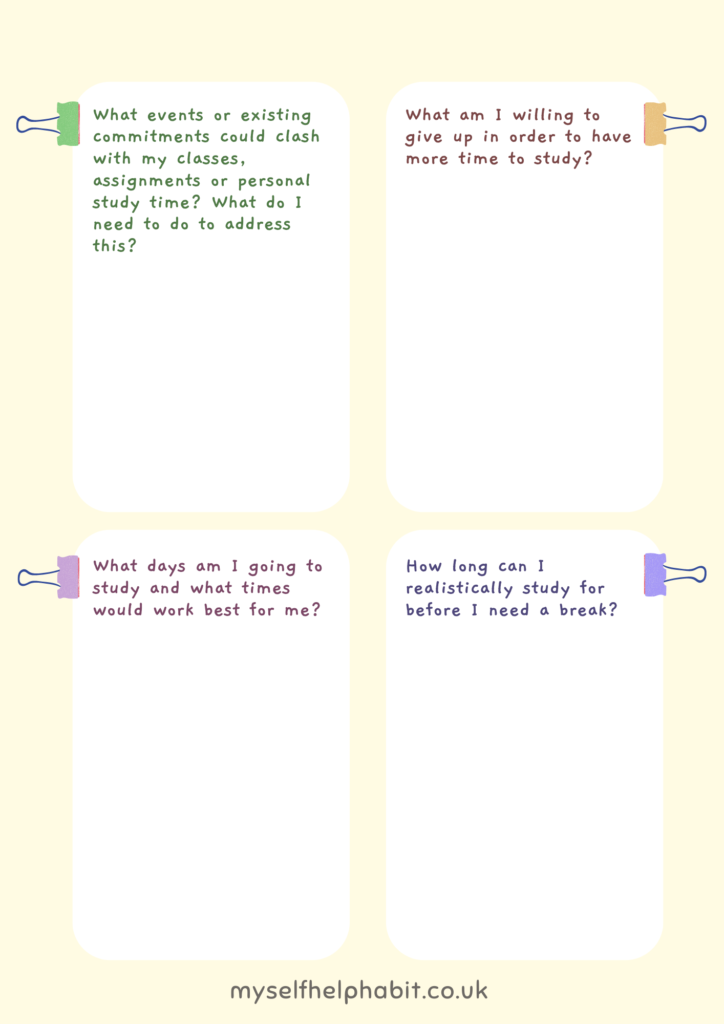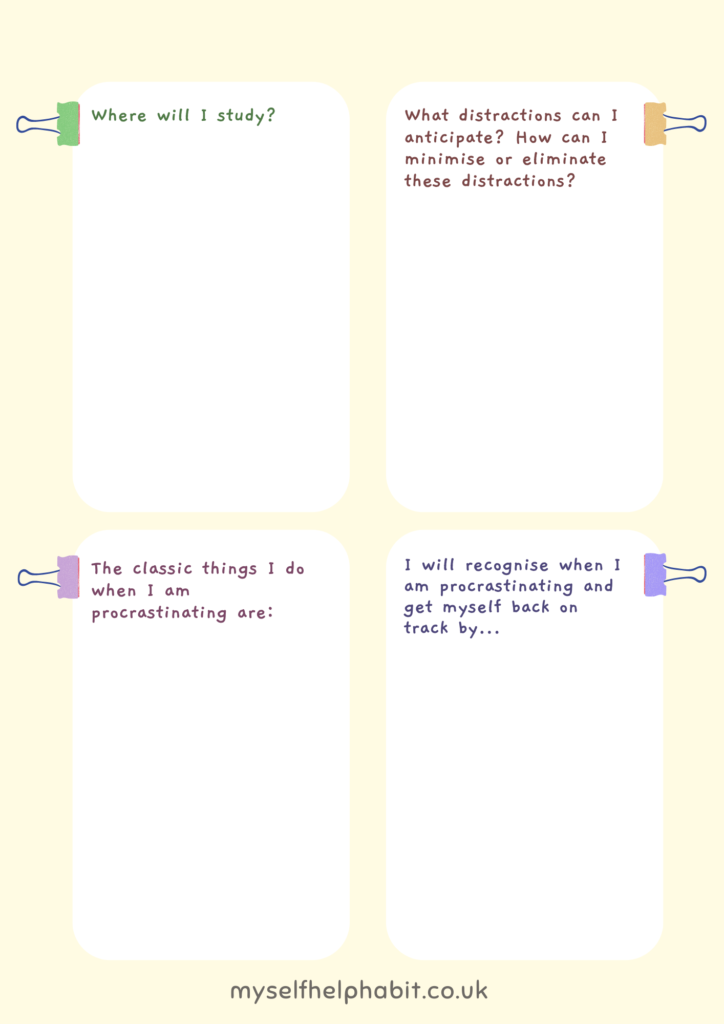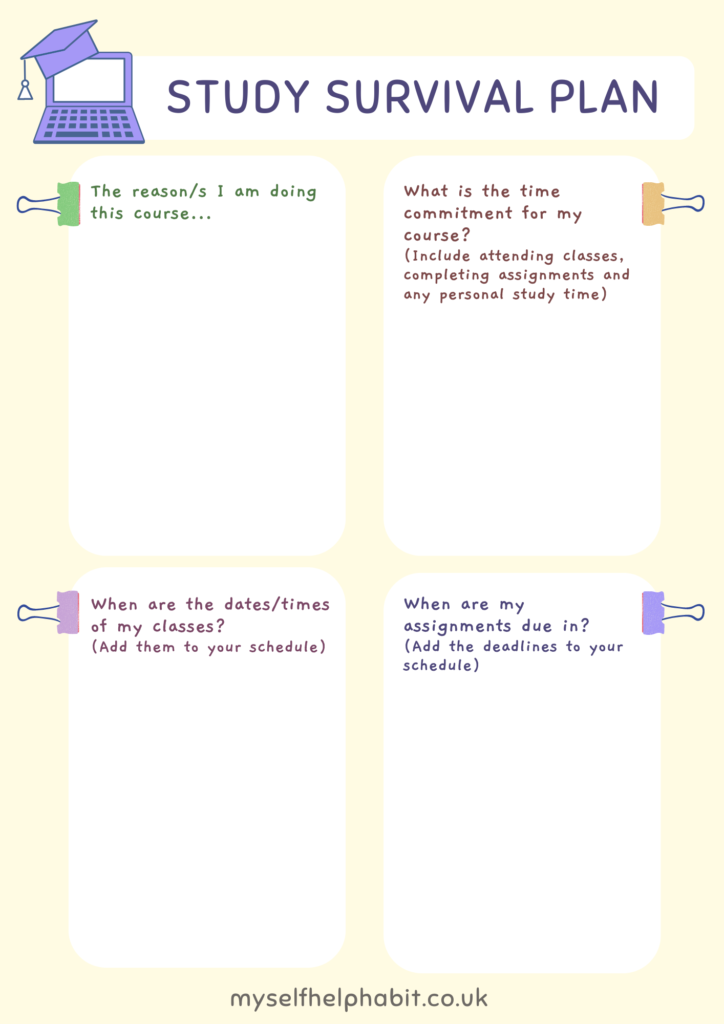
Managing Work and Study Successfully
Have you been mulling over the prospect of undertaking some further study to develop your knowledge and skills and make the next move in your career?
Before you start searching and applying for suitable courses, you may be wondering how on earth you will balance your existing workload with study and all your other personal commitments?! Perhaps you have already enrolled on a course and have been intending to complete it but life just seems to keep getting in the way?
Well, I have been there…many times!
I have always had a strong passion for learning therefore work and study have often gone hand in hand during my career. I achieved my bachelor’s degree, master’s degree and many other professional qualifications while working full-time or part-time hours and looking after my young family. I am now in the final stages of completing my Postgraduate Certificate in Business and Personal Coaching alongside setting up a business from scratch and raising my family.
It is fair to say that I have had to negotiate and overcome many different hurdles as I have attempted to balance work, study and family life so I’m here to share my top tips with you!
After you have read through my suggestions for balancing work and study, you can download and complete your very own Study Survival Plan (there are 5 pages in total) which will help you to sail smoothly through your course!


Remember your ‘why’
Remind yourself where you want to get to in your career and why you have set out on this learning journey. Keeping the bigger picture in mind can boost your motivation when the course work gets challenging and you feel like giving up!
- What made you sign up for the course (or consider it) in the first place?
- How does the course fit with any personal, professional or organisational objectives you have?
- How will it benefit you and other people?
Once you have established your reasons for doing the course, write them all down, or put together a visual document of images that represent your reasons. You may also want to add in some inspirational quotes to spur you on!
Put your list of reasons or visual somewhere easily accessible (such as on a screen saver/background on your laptop or phone or put it in your folder/notebook) and come back to it often.
Plan ahead
Put any submission deadlines and all the classes that you need to attend in your diary as soon as you are given the details. You can then organise your work schedule around them and, if necessary, make the course provider and/or your line manager aware of any diary clashes and come up with a way forward. For example, can you miss a class or meeting and catch up at a later date? Could you ask for an extension on a piece of work? Can you defer a course module? Be realistic about how much work you can manage at any one time and ask for the support you need.
Don’t forget to take into account your personal commitments too – birthdays, anniversaries, religious festivals, social gatherings, clubs/hobbies, half-term holidays, etc. these events may all have different demands on your time and you might need to consider handing in your assignments early or negotiating deadlines so that you can give your time to your personal commitments.
Set achievable study goals
Write down some daily, weekly and monthly study goals to keep yourself on track for the duration of your course. For example,
- How may hours per week do you need to study?
- How much writing do you need to get done today?
- How many pages do you need to read of your textbook?
- When do you need to get that assignment in? What are the steps you need to take in order to meet that deadline and when are you going to take them?
Identifying opportunities to study when time is tight!
Before you apply for a course see if you can gauge how much time you are going to need for classes, assignments, personal study and any other preparation that you are expected to do. Some courses give an indication of the time commitment involved but if not it may be worth contacting the course director to find out.
If you are working full-time and studying then it will definitely be a case of focusing on what you can do (rather than what you cannot do) and identifying the time slots in your day that are not taken up with other responsibilities. This may include:
- Taking a close look at your schedule – What can you say no to? What could you put on hold for a while to give you room to study? What could be delegated (even temporarily)?
- Studying while on the commute – I used to read a lot on the train! If you are unable to read on the commute then consider listening to an audiobook/recording or a podcast related to your subject area.
- Using some of your lunchtime – now obviously your mind does need a rest from all that work so make sure you also take a break! However, there may be 20 minutes at the end of your lunch break where you could take yourself off and do a light task such as reading a couple of pages of a textbook or researching some databases.
- Taking advantage of any waiting time – If you are sat waiting for an appointment, at the hairdressers waiting for your colour to set, or at an after school activity then consider taking your books with you!
- Getting up 30 minutes earlier a few mornings a week to fit in some reading or allocating some of your evenings to study.
- Studying during quiet periods at work (though be sure to get your line manager’s approval first!)
- Capturing ideas on the go – The notepad on your phone is your new best friend! I found this was an effective way of getting started with my essays while I was on the commute home from work or if inspiration suddenly struck me while I was out and about (it happens!)
- Finding an app that will save you time and make studying easier – Take a look at study apps that may support your learning and could make you more effective when you are stuck for time. The London School of Economics have made a list of the 10 best study apps for students and there will be many more out there!
You may also need to consider taking some annual leave or unpaid leave and to use your weekends to help you gain some additional study time and to meet your assignment deadlines. You could also cut down on social activities or hobbies (but obviously make sure that this is not to the detriment of your wellbeing). These may not be ideal options but you will need to decide what you are, and are not, willing to sacrifice.
Recognise procrastination
I don’t know what it is about studying but it can make that pile of papers that you have been ignoring all year, the cupboard you have been meaning to clear out, the Netflix series you have not yet completed, all suddenly seem like a matter of urgency. We can be drawn into low priority tasks so easily and we can be superb at convincing ourselves that they are exactly the things that we need to be focusing on!
Try to catch yourself when you are doing this and, as soon as you do, get yourself right back on track! The suggestions below may help and also take a look at my post on how to beat procrastination.
Build good study habits
Get yourself prepared
Before you begin your study session, check that you have:
- Gathered the books or papers that you are going to need
- Have all your equipment to hand (e.g. pens, highlighters, notebook, etc.)
- Anticipated and managed any distractions (e.g. put away your phone, switch off the TV, delegate, ignore or schedule in your housework so it’s not tempting you away…, tell people that you are studying and need some quiet or, alternatively, find somewhere to study where you are unlikely to be disturbed!)
- Written down what you intend to do in the study session. I have also got into the habit of writing down where I get to at the end of each study session so that I can easily pick up where I left off.
Making study time work for you
You need to create a study schedule that works best for you and, if at all possible, is in alignment with how energised you feel at different times of the day or week.
What days and times would be best for you to study?
How long are you able to study for? Bear in mind your level of concentration and any commitments that you cannot avoid. The Open University have a brilliant study time planner that you can use to work out where there may be opportunities to study in your week.
Here are some of the habits I have got into that have helped me to make progress with my studies during the working week:
- Piggy back your study time onto another, existing habit that you already have (which will then remind you that it is time to study) e.g. after my lunch, around midday, I will read a few pages of a textbook that is related to my essay. You could also try studying at the same times each day and even in the same location to really embed the habit.
- Make studying the first task you do (if your other tasks can wait!) or schedule it in ASAP during or after your working day.
- Use the Pomodoro Technique – This is a great technique to use when you are writing assignments! Set your timer for 25 minutes and work on your task during that time (with no interruptions and no switching tasks). After the time is up, take a break for 5 minutes or so then set your timer and begin again. This technique helps you to divide your study time into manageable chunks (and stops the essay writing from driving you crazy!)
- Break your tasks down – Starting an assignment can be overwhelming! You can overcome that daunting feeling by breaking the process down into much smaller tasks and then ticking them off of your ‘To Do’ list once you have completed them. If you are writing an essay your small tasks may include: reading the essay guidance, writing down the key terms you are going to research, sketching out what topics you need to cover, and then selecting the different paragraphs or sections that you are going to focus on first.
If your planned study time does not happen then take a look at what got in the way, how you could avoid or overcome the disruption next time, and make a plan to catch-up.
Brush up on your study skills
It may have been a while since you last studied so it is worth revisiting some of the study skills that you will need for your course, such as:
- Research skills – explore the library (especially the sections you will need to access), learn how to search the various online databases, and get familiar with the different research methods that you may need to use.
- Reading techniques e.g. skim reading for the most relevant points, critical reading techniques, and note-taking methods.
- Essay or report writing skills e.g. how to structure and write an essay or report and using the correct style of referencing.
- Revision techniques e.g. mind-mapping, creating visual aids, summarising your notes, etc.
Taking a moment to check your institution’s advice and guidance on study skills can save you a lot of time and stress when it comes to completing your assignments. In addition, check out the marking criteria so that you are clear about what is required of you before you start your assignments.
Get your support squad together
This is hugely important for helping you to navigate your way through the ups and downs of your course. I will be forever grateful to the many people who helped, supported and encouraged me during my studies.
Firstly, consider and then map out what support you think you will need before, during and after your course. This may involve:
- Speaking to your line manager and asking what the company can do to support you while you are studying (e.g. explore any temporary, flexible working arrangements, find quiet spaces within the workplace to study, check out any learning and development policies that may grant you study leave or funding). If your course is not related to your job (and you need to start entering negotiations!) then highlight how the skills that you will gain on the course will enhance your performance at work.
- Arranging childcare so that you can have some uninterrupted study time.
- Having a conversation with your partner and friends about the demands of the course, what you will (and will not) be able to commit to, and how you would like them to support you.
- Asking a peer on the course to be a study buddy or even organising a study group and setting up a group chat on WhatsApp so that you can easily contact each other to share ideas and questions.
- Hiring a coach for goal setting, accountability, and support during your course.
- Contacting your tutors and making sure that they are aware of any difficulties or concerns that you are having. They may be able to suggest how you can lighten the load (e.g. by directing you to the most important reading material), where to focus your efforts, extend deadlines (or explain the process for doing that) and point you towards any other policies the institution has that may support you.
- Taking a good look at what support your institution offers to students before, during and after their studies. You never know when you might need it (life happens!) and it is well worth getting clued up on this before you start your course.
Make study time enjoyable!
Although it may feel like it sometimes, studying does not have to be another onerous task to tick off of your ‘To Do’ list.
What could you do to make your study time more appealing (and even something that you look forward to doing)?
Here are some suggestions for making studying an enjoyable activity:
- Listen to music as you work (as long as it doesn’t distract you too much!)
- Study outside or find a quiet spot in your local café
- Try a different medium for accessing information – you could check out podcast episodes related to your subject (these are great for giving you different perspectives), listen to an audiobook on one of your topics or watch a YouTube video. Of course, remember to consult reputable sources, and always check the credibility of the authors/hosts, especially if you need to cite anything in your assignments!
- Buy yourself some nice stationery – I particularly like the motivational ‘You can do it!’ messages that you can get on notebooks, pens, sticky notes, etc.
- Eat something tasty while you study (a bountiful supply of tea, biscuits and chocolate get me through the challenging times!)
- Study with a friend on the course – you could share ideas and approaches and then work on your assignments in silence but still in each other’s presence e.g. microphones off but cameras on if you are meeting online over a platform like Zoom/Teams/Slack etc.
- Reframe how you are thinking about your study time: Look at it as time for you and a worthwhile investment in your development. Enjoy soaking up the knowledge and consider how you could apply it to your work or elsewhere in your life – this may spark off some exciting ideas and future goals!
Reward yourself
Submitted an assignment? Celebrate it!
Got a decent grade? Celebrate it!
Made it halfway through the course? Celebrate it!
To keep yourself motivated, and to ensure that you are stopping to appreciate all your hard work, celebrate each milestone and win as you go along. It is easy to just move onto the next module or assignment without a second thought!
Create a list of rewards that you could give yourself as you go through the course. You could treat yourself to a meal out or a takeaway, a pamper session, a weekend away, a bubble bath, a shopping trip, or go and watch the latest release at the cinema, etc. These can all make great incentives when the going gets tough and will give you something to look forward to.
Keep up the self-care
Life can become incredibly busy and intense when you are working and studying (especially around submission deadlines and exam time!) It is very tempting to keep working away and to burn the midnight oil but, believe me, this can take its toll on your wellbeing and you may begin to feel irritable, fatigued, and stressed. This not only affects you but also those around you.
You need to ensure that you are replenishing all that energy that you are spending on your studies. So, when you are planning your study schedule make sure that you are also factoring in some down-time. This could involve:
- Planning in regular breaks (especially if you are making a day of it!)
- Scheduling some daily activities that allow you to switch-off
- Getting the sleep you need
- Eating nourishing foods and staying hydrated
- Getting up from your desk and moving your body (e.g. stretch, take a walk, or do a short cardio workout)
- Taking a holiday (even if it is just a long weekend somewhere well away from your books!)
- Spending some quality time with loved ones
You can then come back to your studies feeling refreshed, focused and raring to go!
Maintain a growth mindset and embrace the learning process
It is likely that there will be a few challenges to overcome as you get to grips with the course material. As you go through your course you will be stepping out of your comfort zone and entering the ‘learning zone‘. While this may bring much personal satisfaction as you start expanding your existing knowledge and skills you may also have to contend with feelings of frustration, confusion, and even disappointment.
This is why maintaining a growth mindset is so important. Essentially, you have to remind yourself that you are on the course to learn and develop! Focus on the improvement that you are making as an individual (try to avoid the temptation to compare yourself to your peers) and if you hit a setback then take some time to think about what you have learned from the experience, explore your options, and look for strategies that will help you to move forward.
Finally, it is also good to remember that this is only temporary and your time on the course will not last forever. Courses tend to fly by and you will be graduating before you know it!
If you haven’t already done so, then either during or as you start nearing the end of your course, begin planning your next steps. Think about what you want to do with the qualification that you are going to achieve and look out for opportunities to apply your new knowledge and skills as soon as possible.





